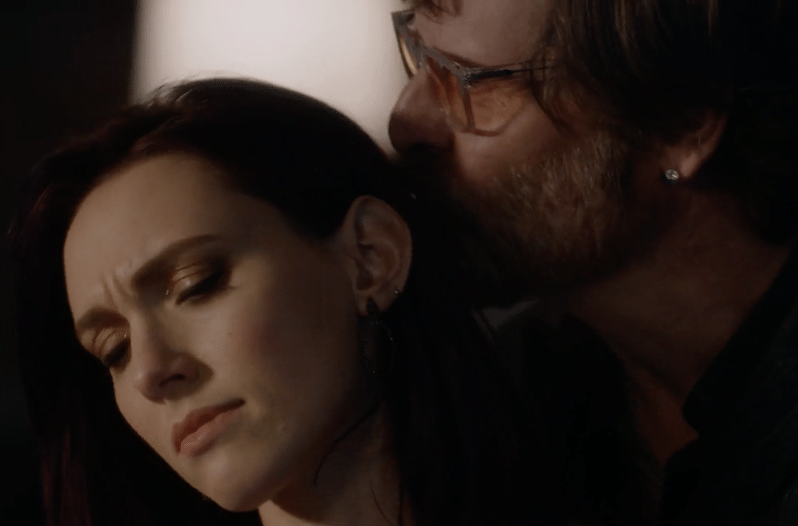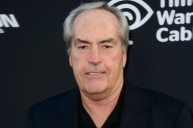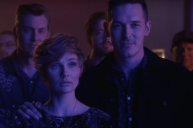Although many fans are busy talking about the reemergence of Rayna Jaymes, there was one very important moment during last night's finale episode of Nashville that deserves discussion.
In the episode, rising artist Alannah, played by Rainee Blake, gets invited to Brad's (Jeffrey Nordling) hotel room for a party. When she arrives to an empty room, Brad attempts to force himself on her. When Alannah escapes from his grasp, he explains the twisted thought process that still lurks within the industry.
"You're not going anywhere until I clarify something with you," he says. "Look, you knew what you were doing. You did! You were flirting with me. You were teasing me. You know the rules. And you and I have been playing the game that's been around as long as there's been powerful men and beautiful women. The man helps the woman, and the woman helps the man. There's an implicit contract. So, look, you either hold up your end of the contract or you're in breach."
When Alannah turns to leave, Brad tells her that she'll "never work again."
It's a scenario that we've unfortunately heard time and time again from Hollywood. But it's also the same story told by many women within the country music industry, including those who anonymously spoke to Marissa Moss for her groundbreaking piece on Country Radio Seminar. It also serves as a reminder of the Kirt Webster scandal, which proves that harassment is often hidden in plain sight.
But the episode didn't end with Alannah's character defined as a victim. Instead, Alannah, Brad's ex-wife Jessie, a lawyer and many other women march into his office. When Brad claims that they can't prove any wrongdoing, Alannah reveals she had recorded audio of the entire hotel room incident.
This isn't the first time Nashville tackled the issue of sexual harassment in their episodes. During the series' second season, Hayden Panettiere's character Juliette finds herself fighting off the advances of a creepy DJ. Artists like Kacey Musgraves and Katie Armiger have been open about experiencing similar harassment by individuals within the radio industry.
"It's always been a part of the music business," Nashville creator Callie Khouri told Variety. "It's just woven all the way through it. Get any female artist ... and you'll hear it. I felt like it was really important to show how it happens — that it's still happening."
The real Nashville still has a long way to go in terms of addressing the culture of harassment in country music. In March, a proposed bill in Tennessee that was created to provide better protections against sexual harassment to independently contracted music industry workers died in the state's House of Representatives. The widespread conversation about how to tackle the issue within Music City seems to have cooled for now, but Nashville's parting message is a needed reminder that there is much more work to be done.




